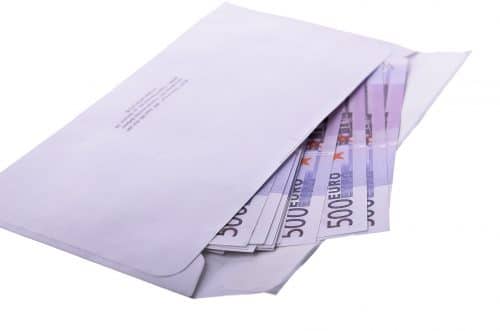Advertisements
You've done it: You've done the hard work of establishing a budget. Now, you plan to keep it on your way to financial wellness.
But how do you handle the "bumps" in your budget when do they appear? Potholes can throw you off the road if you're not careful. However, with a little knowledge and planning, you can avoid budget risks and stay on your way to a better financial future.
Advertisements

Take a look at the following common mistakes in crafting budgets. Once you know these mistakes and how to avoid them, you'll be armed with powerful financial knowledge that will help you make better decisions today, tomorrow, and for years to come.
Advertisements
#1 Budgeting Mistake: Skimping on Emergency Savings
If only budgeted your monthly expenses and not your savings, your budget may be doomed from the start. Life happens when we are busy making other plans, and everything budget reasonable needs an emergency savings item. If you're one of the 39% of Americans who doesn't have an extra $400 in the bank for life's unexpected blips, you'll strain your overall finances trying to break even.
To avoid this mistake budget, make building your emergency savings a priority. Experts recommend an emergency fund of six weeks of your take-home pay, but you can start small to make your savings efforts a reality. Try to set small, achievable goals first, such as $25 for every paycheck or 5% of your income. Then set a savings goal like $250. Once you reach that savings goal, set a new goal.
Budget Mistake #2: Relying on Guesswork
Create a budget using guesses leaves a lot of room for error. A bulletproof budget starts with knowing what the true cost of your living expenses is each month. And sure, it's tedious to sit through all your bills and recurring charges to get exact numbers. Those numbers are the key to a budget that works and grows with your home, your income, your dreams, and your future.
To avoid this error in the budget, take an hour (just an hour) and count all your monthly expenses. Start with your fixed expenses, like rent or a mortgage. Be sure to check your bank and credit card accounts, including the amount of money you take out of the ATM in cash. Just one hour can help make sure your budget be true and accurately reflect all of your monthly obligations.
Budgeting Mistake No. 3: Not Tracking Your Spending
A budget it is not a “set it and forget it” tool. For a budget to be successful, it is essential that you diligently track where your money is going and what you buy each month. If you don't keep track of your discretionary spending, even the small purchases you make for coffee or a snack, you could be wasting your budget.
To avoid this mistake budget, start small. Set a reasonable goal to track your spending for a month. This practice will give you a clear idea of where your money is going. From there, you can make adjustments. You may even consider using budgeting apps to make it easy to track expenses each month. The easier it is to track your spending, the easier it will be to create good budgeting habits.



